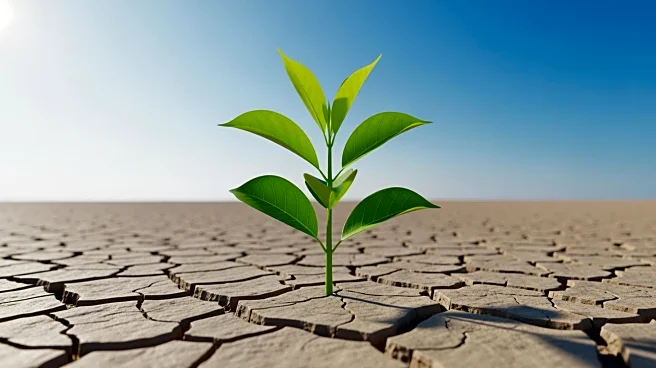What's Happening?
Brazil's President Luiz Inacio Lula da Silva has called for a rapid transition away from fossil fuels, emphasizing that the Earth can no longer sustain the current development model reliant on coal, oil,
and gas. Speaking at a summit in the Brazilian Amazon, Lula highlighted the urgent need to address climate change, noting that the last decade has been the hottest on record. The summit, which precedes the annual UN climate conference COP30, aims to create a roadmap for reducing fossil fuel dependency. However, resistance from oil-producing countries poses a challenge to setting a definitive timeline for this transition.
Why It's Important?
The call for a transition from fossil fuels is significant as it addresses the root cause of climate change—greenhouse gas emissions from burning fossil fuels. This shift is crucial for meeting global climate targets, such as those outlined in the Paris Agreement, which aims to limit global warming to below 1.5 degrees Celsius. The transition could have wide-ranging impacts on global economies, particularly those heavily reliant on fossil fuel industries. It also highlights the need for international cooperation and financial support for developing countries to adopt cleaner energy sources.
What's Next?
The upcoming COP30 conference will be a critical platform for negotiating the specifics of the transition away from fossil fuels. Countries will need to agree on timelines and financial mechanisms to support this shift. The proposal for a luxury flight tax, aimed at reducing emissions from air travel, may face opposition from the aviation industry but could gain traction as a means to fund climate initiatives. The success of these negotiations will depend on the willingness of major polluters to commit to substantial changes in their energy policies.
Beyond the Headlines
The transition from fossil fuels also raises ethical questions about equity and justice. Developing countries, which are often the most vulnerable to climate impacts, require support to transition to sustainable energy sources. Additionally, the shift could lead to job losses in traditional energy sectors, necessitating policies for workforce retraining and economic diversification. The discussions at COP30 will need to address these complex issues to ensure a just and equitable transition.










